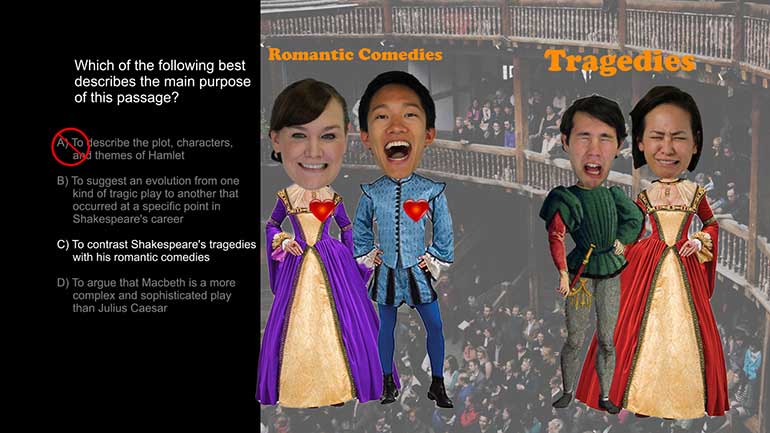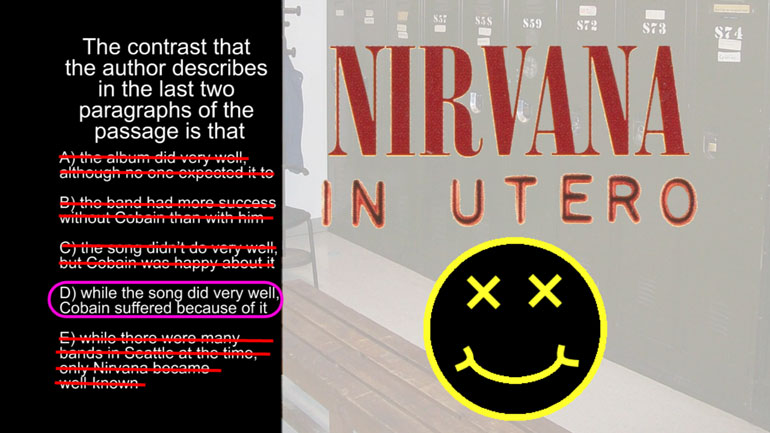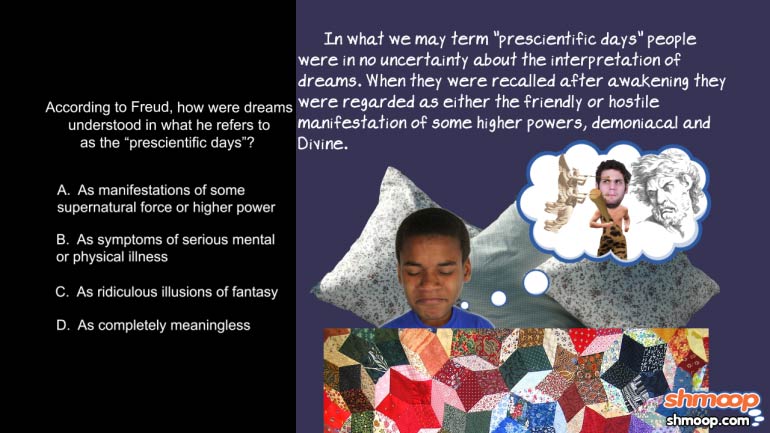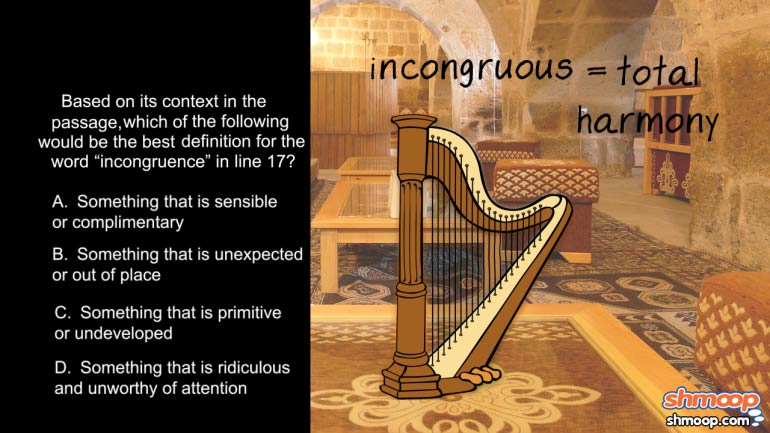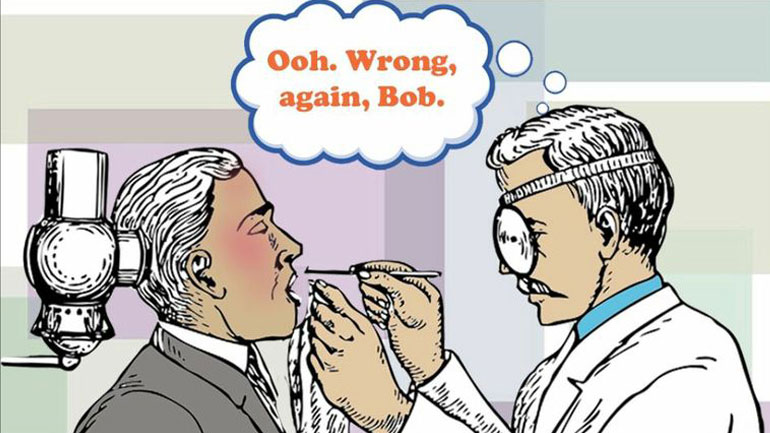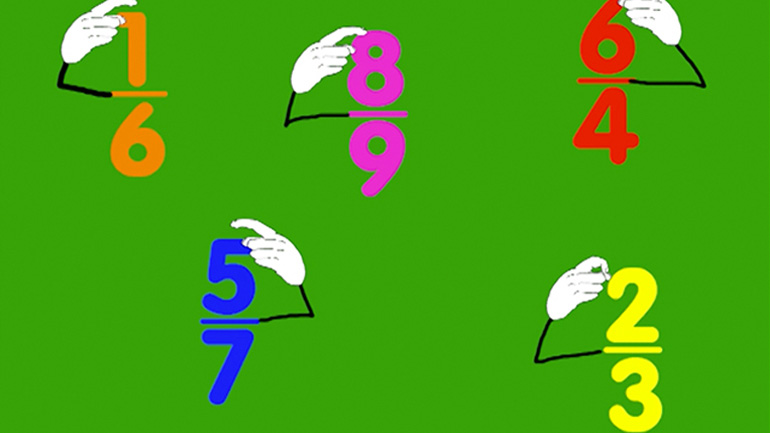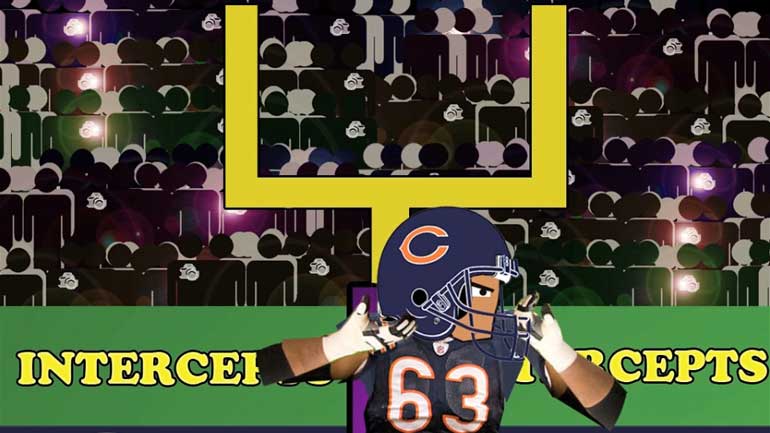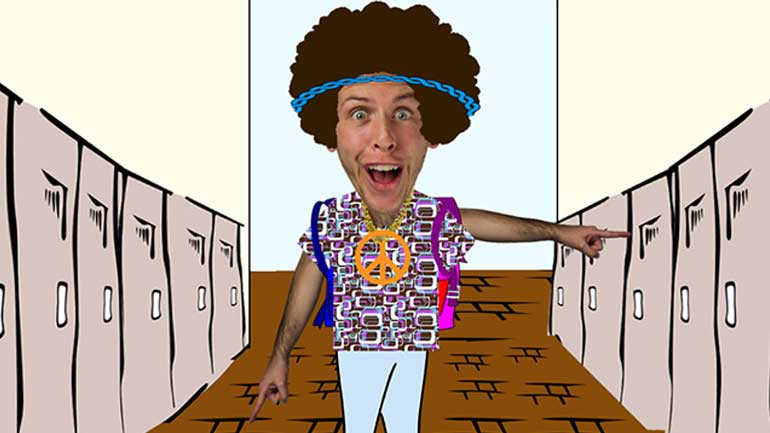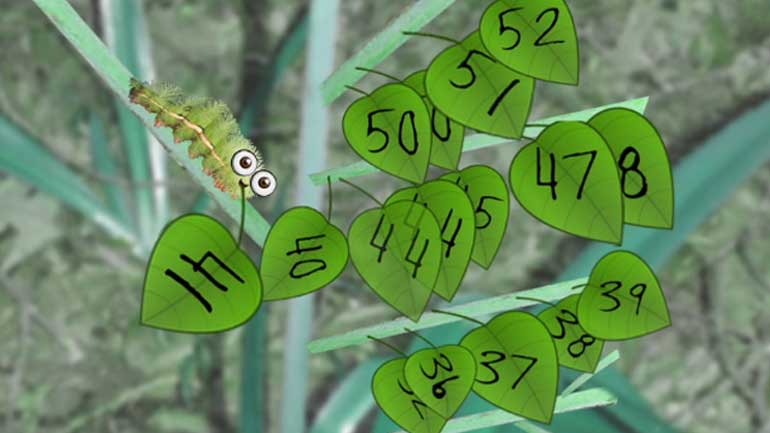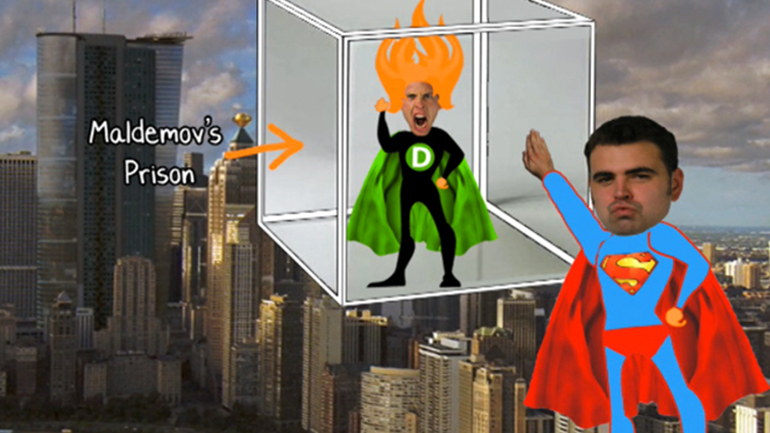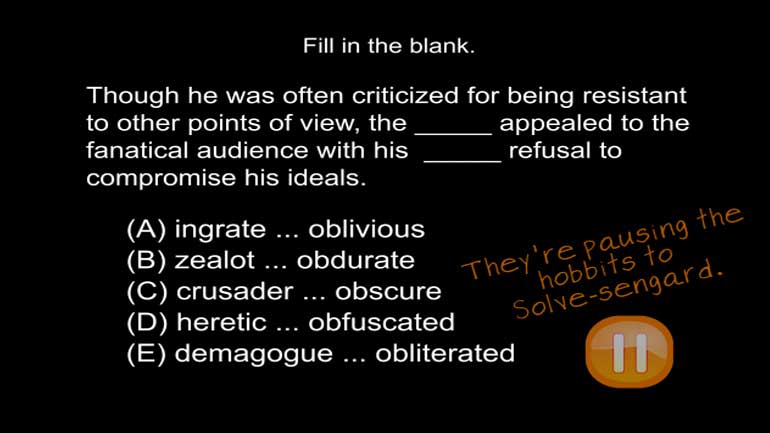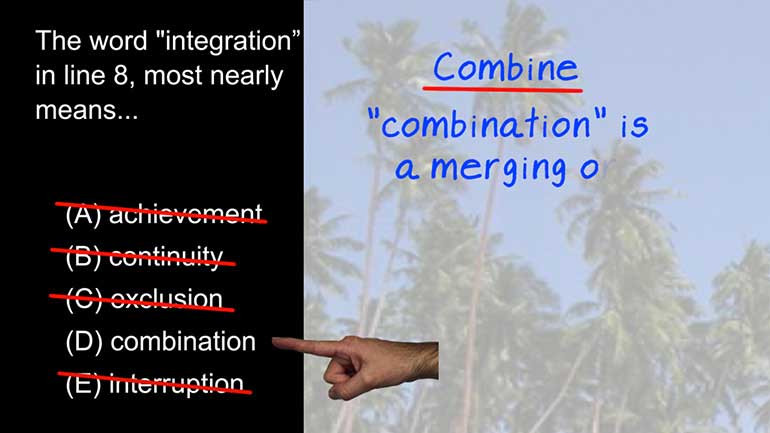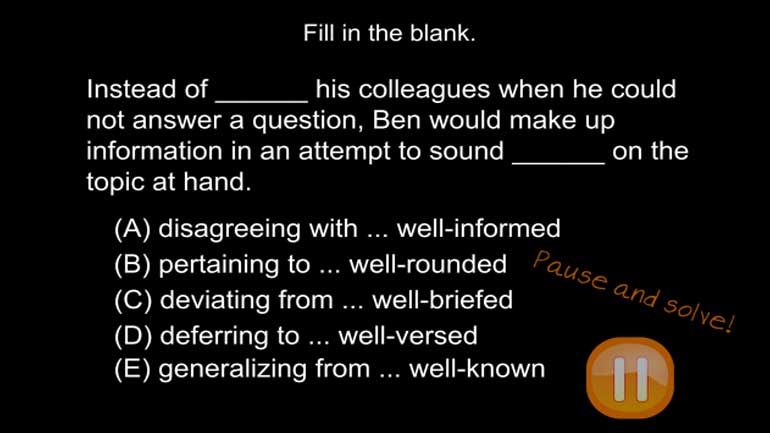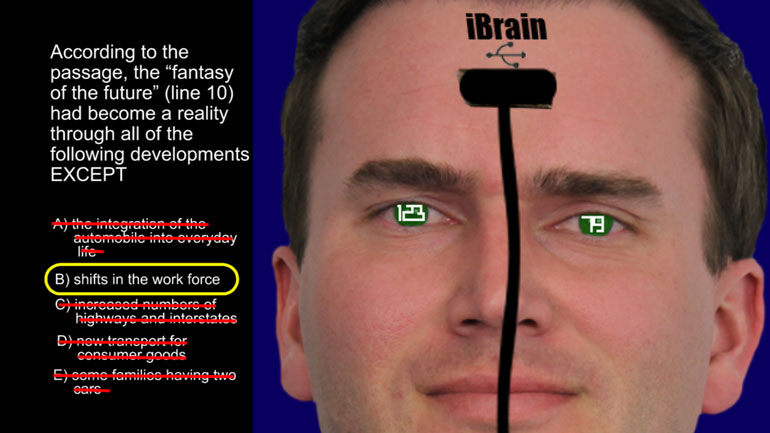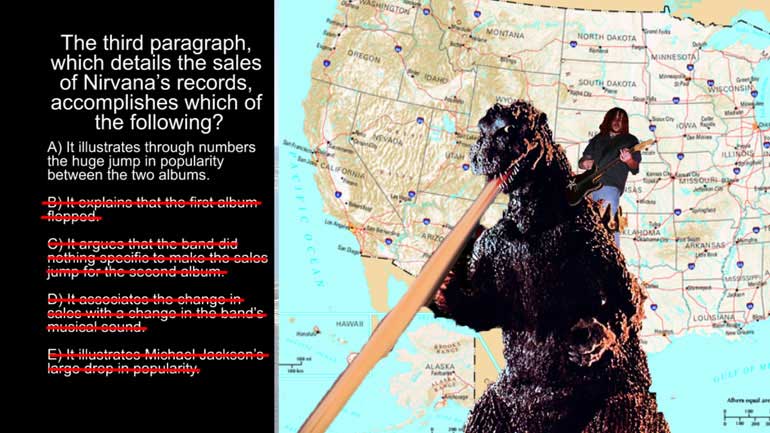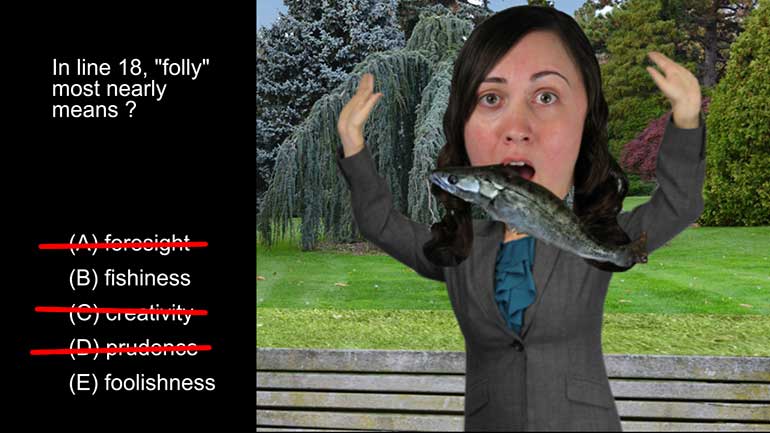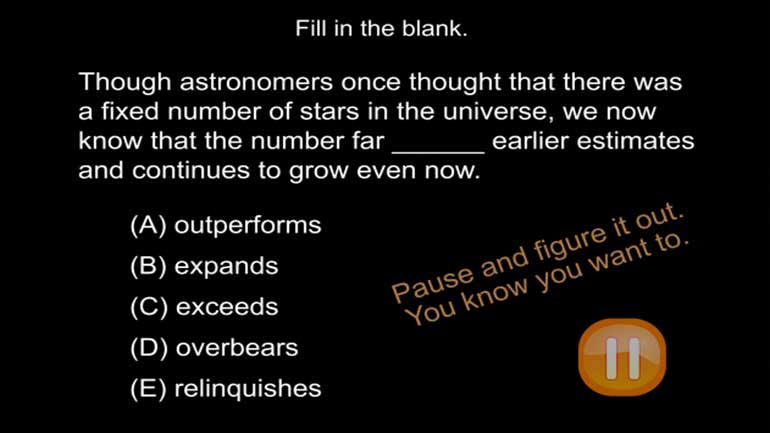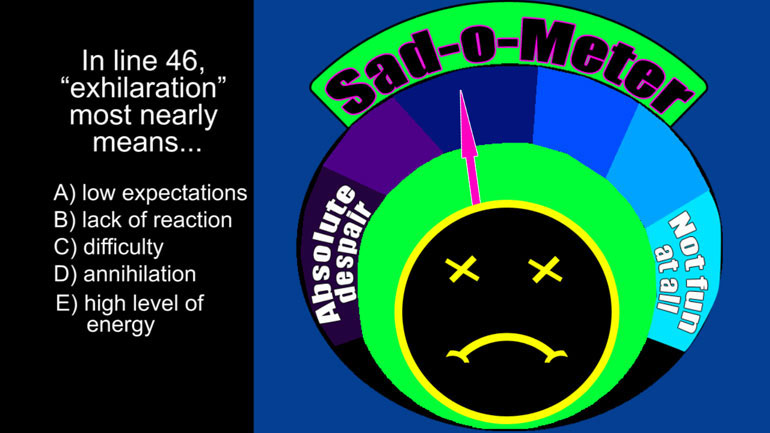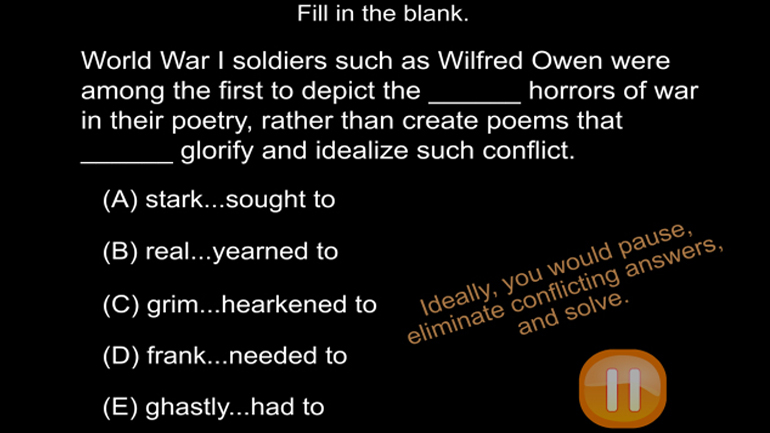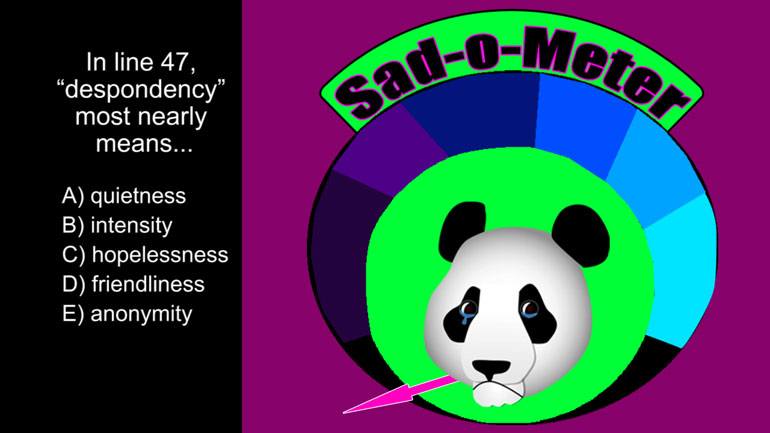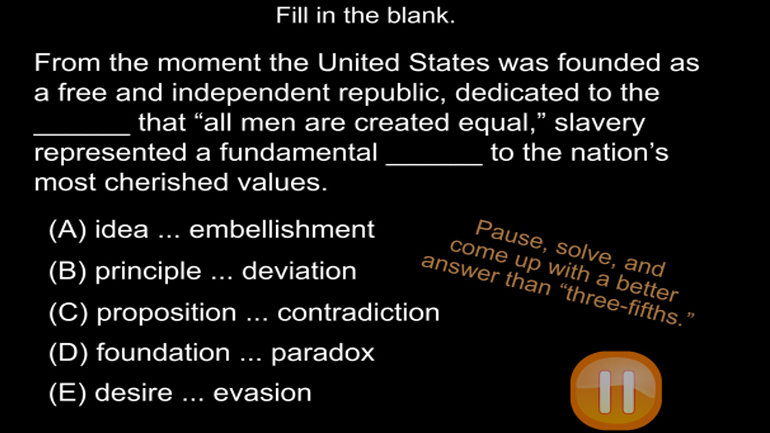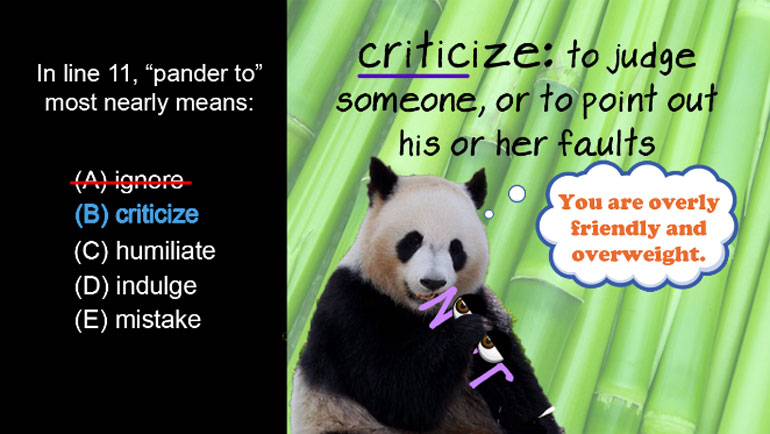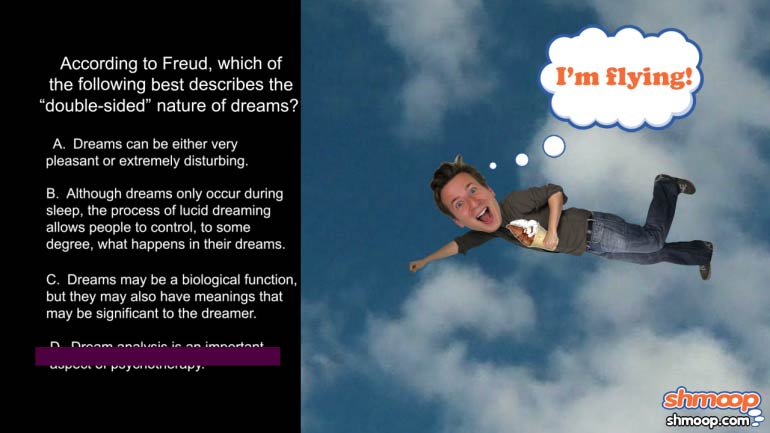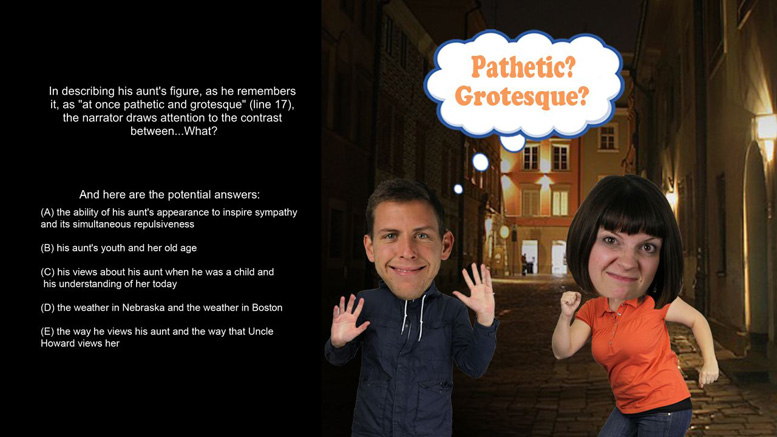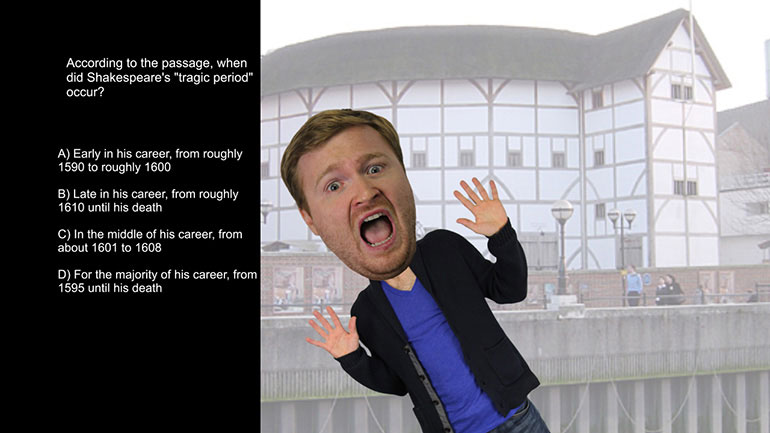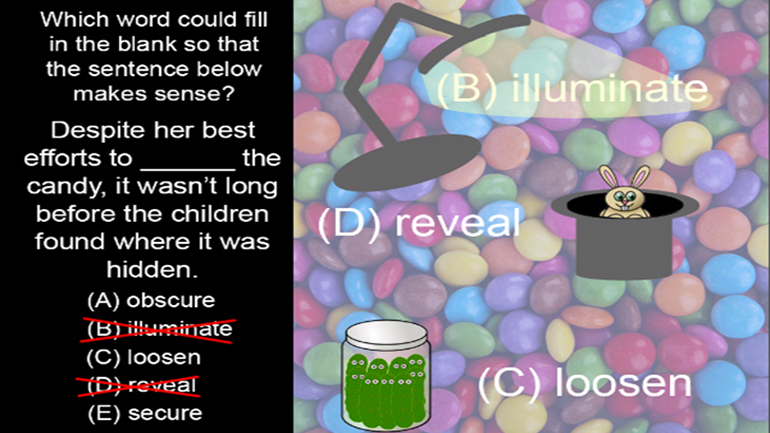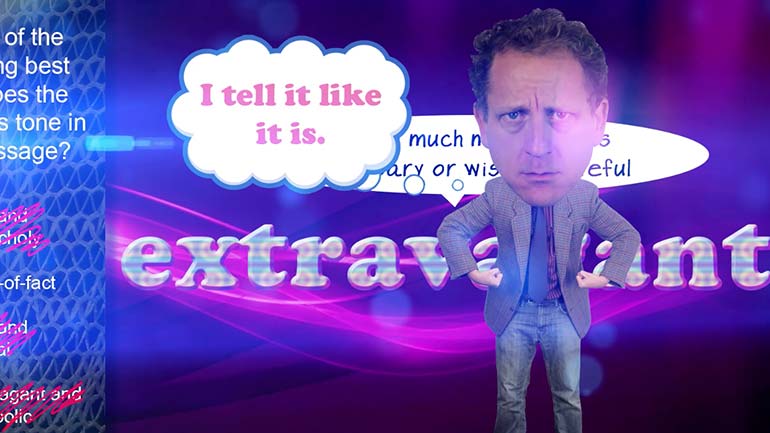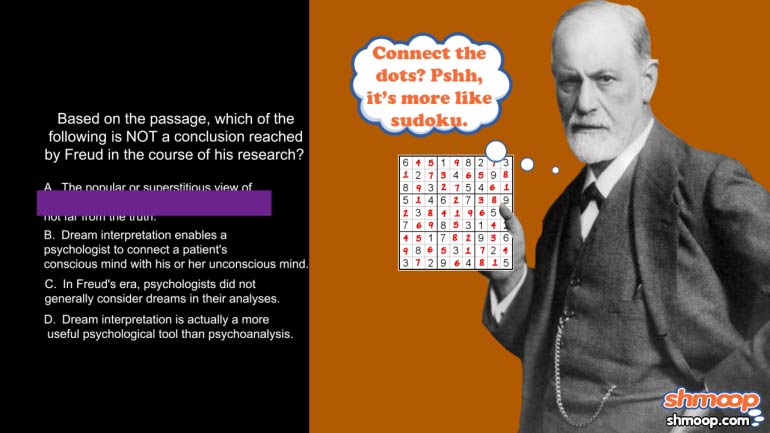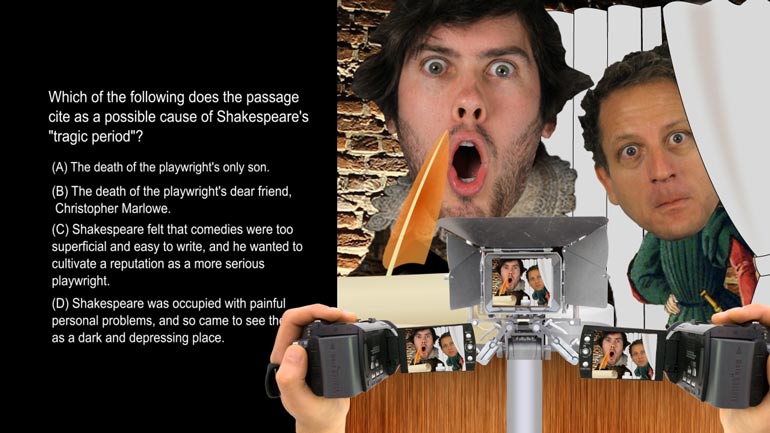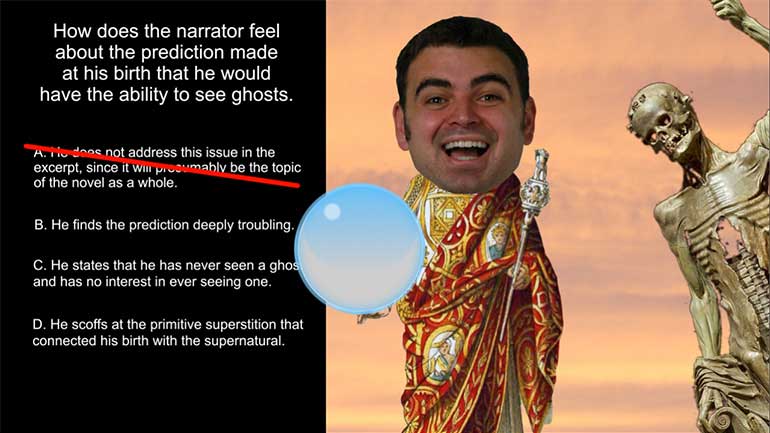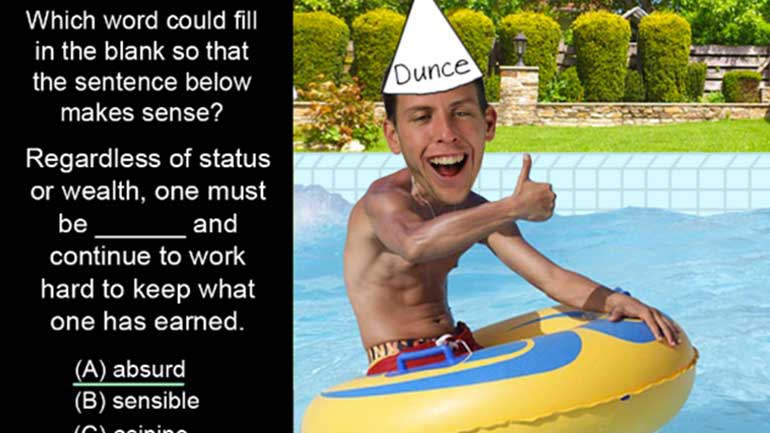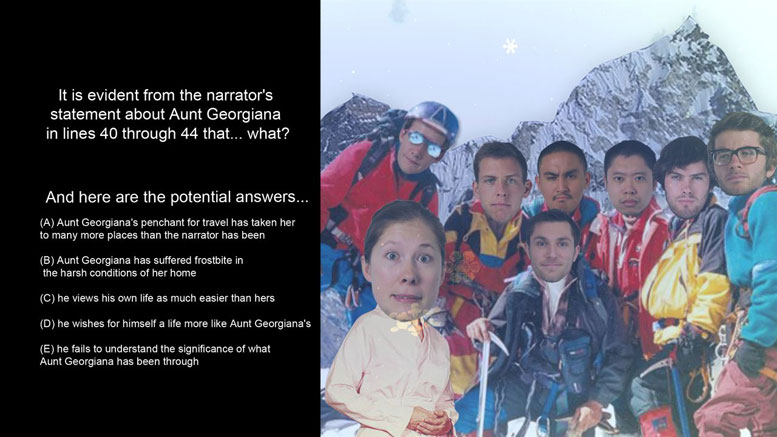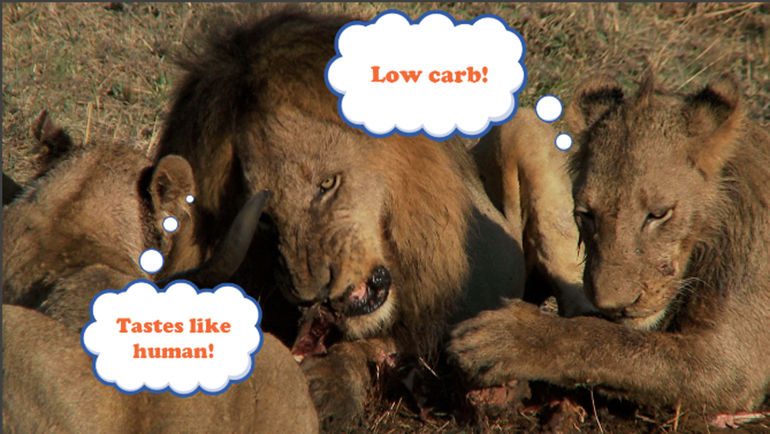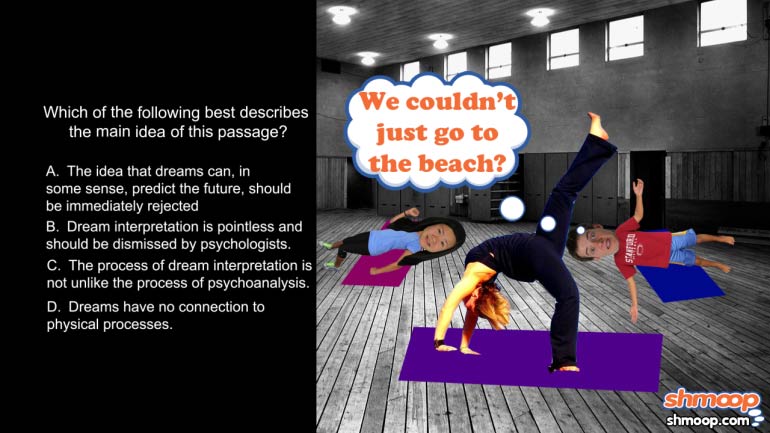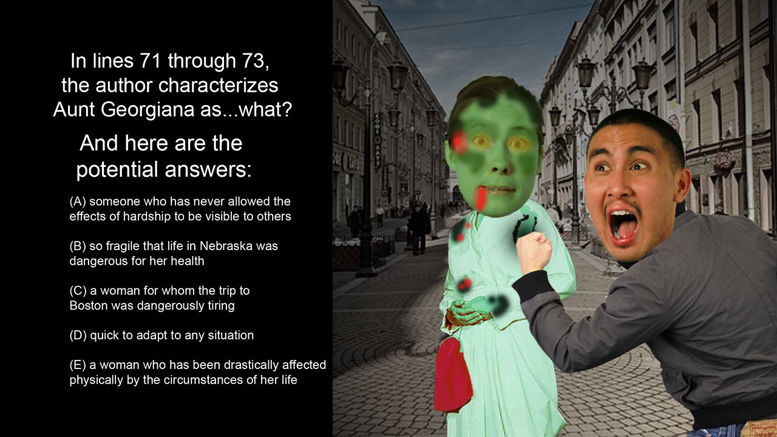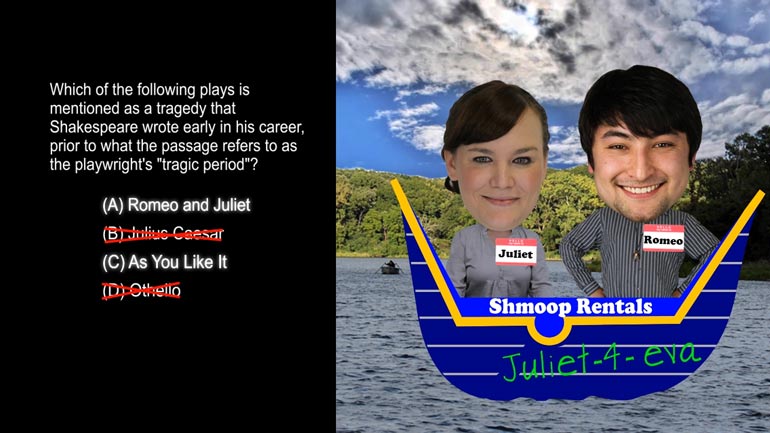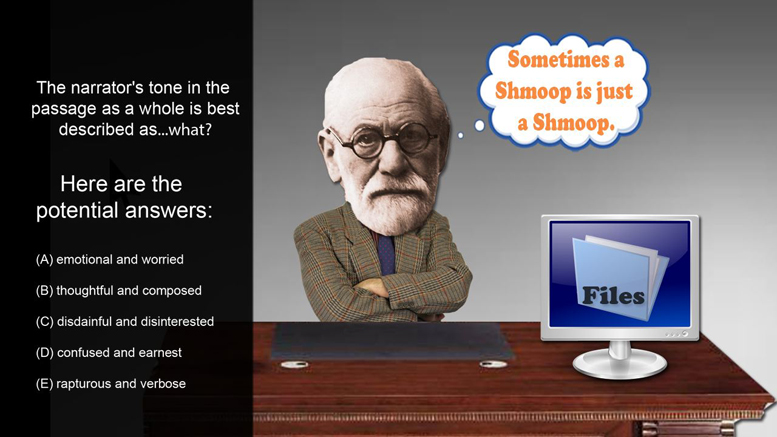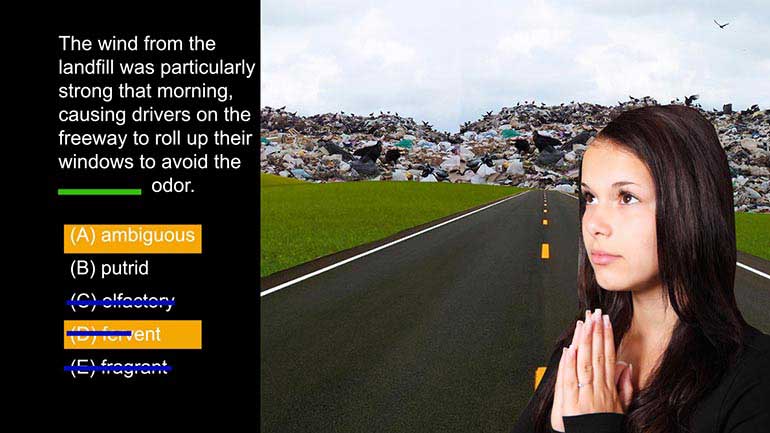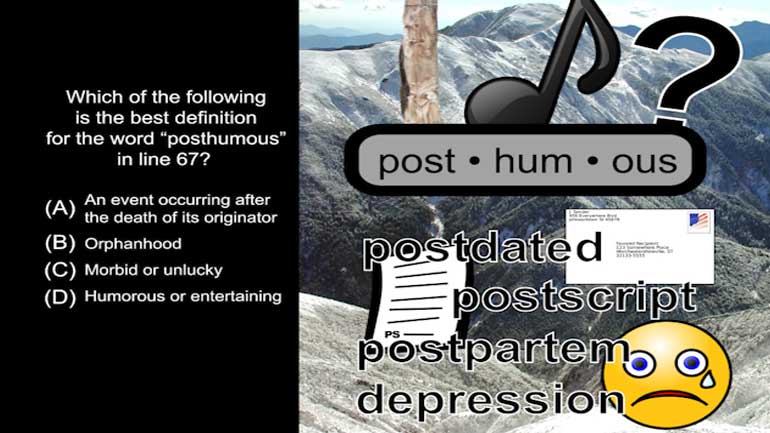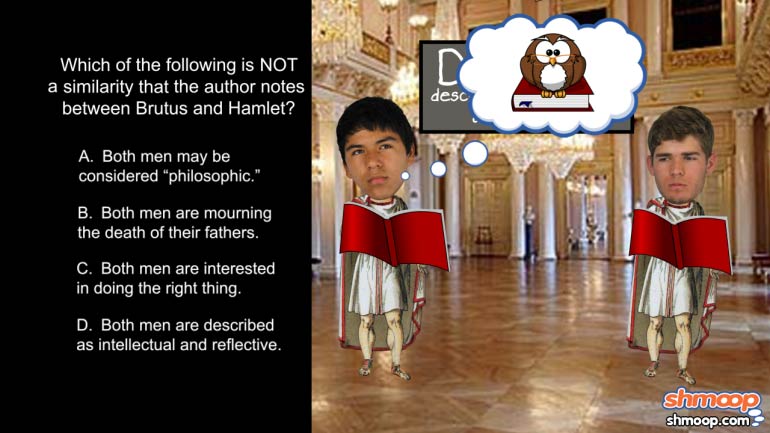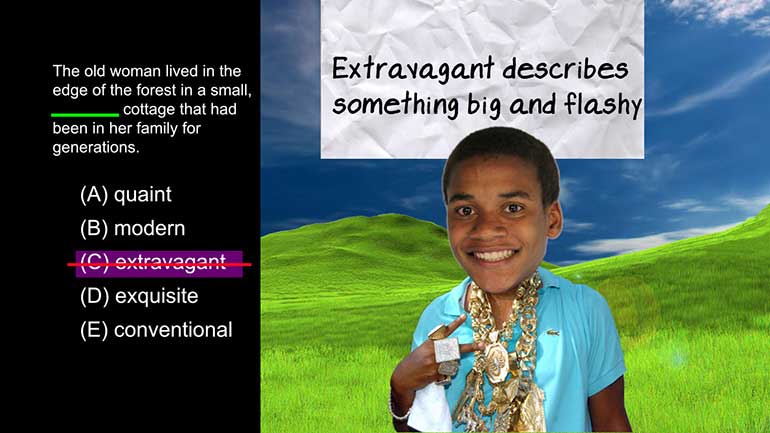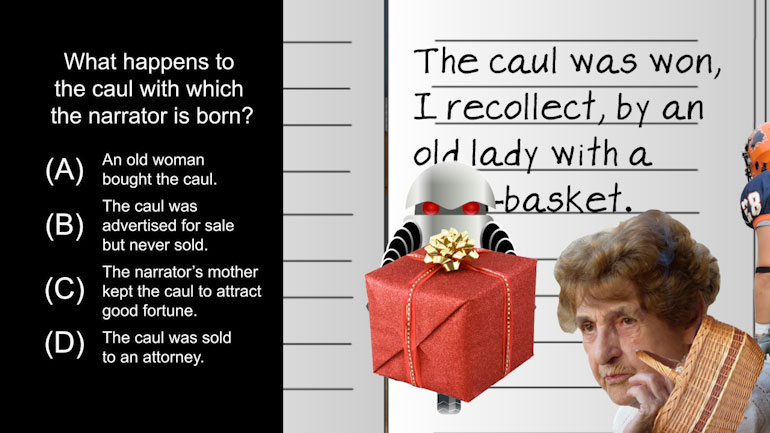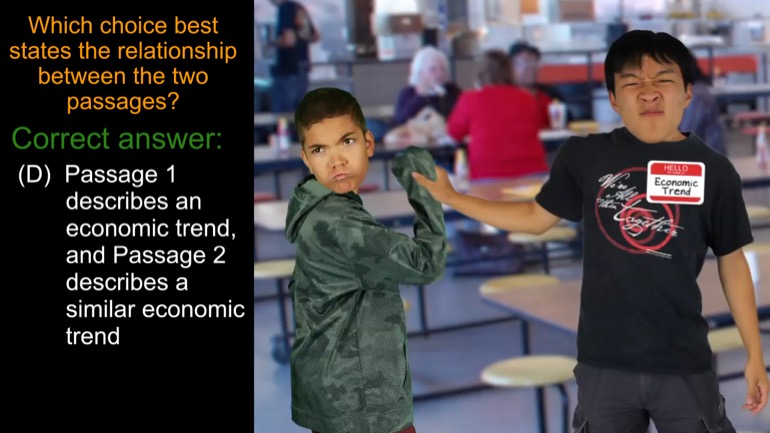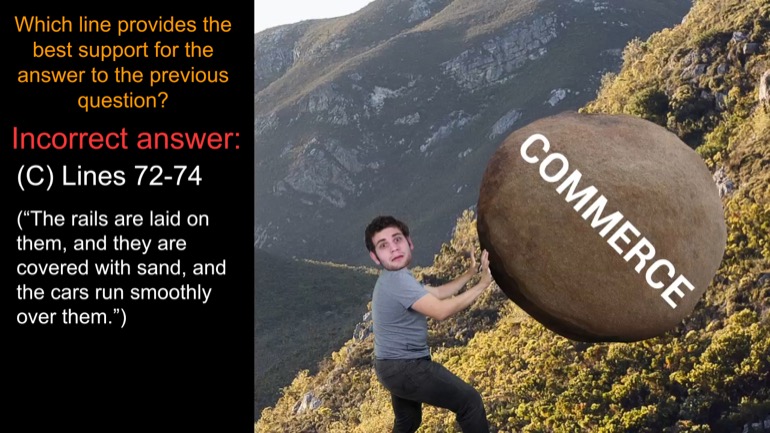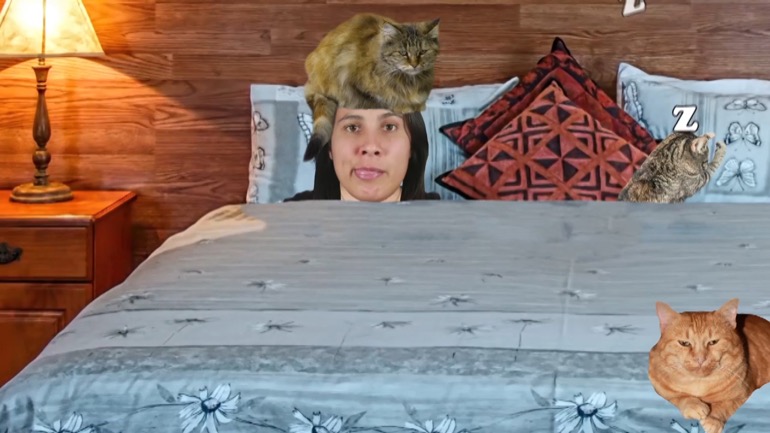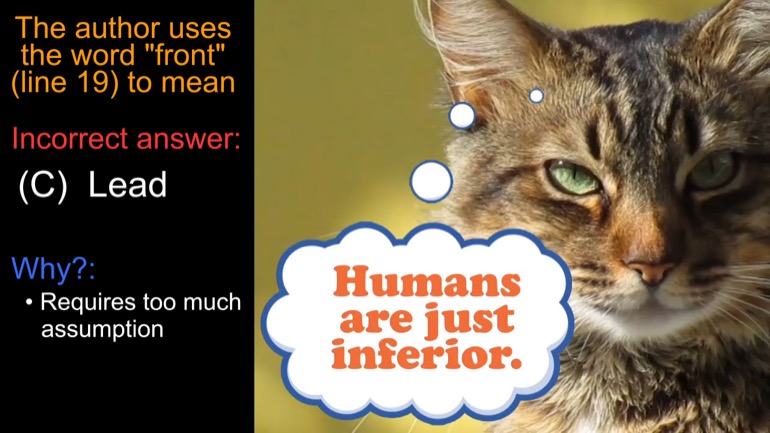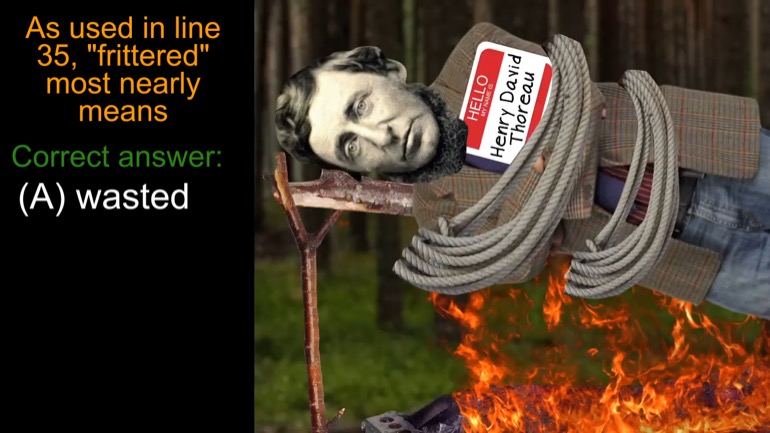ShmoopTube
Where Monty Python meets your 10th grade teacher.
Search Thousands of Shmoop Videos
Foreign Language Videos 385 videos
ACT Reading: Humanities Passage Drill 1, Problem 1. Which of the following best describes the main purpose of this passage?
ACT Reading: Social Science Passage Drill 1, Problem 1. According to Freud, how were dreams understood in what he refers to as the "prescienti...
SAT Reading 1.4 Sentence Completion 192 Views
Share It!
Description:
SAT Reading Sentence Completion Drill 1, Problem 4
Transcript
- 00:03
Here's an unshmoopy question you'll find on an exam somewhere in life...
- 00:07
Which words could fill in the blanks so that the sentence below makes sense?
- 00:11
World War I soldiers such as Wilfred Owen were among the first to depict the blank horrors
- 00:16
of war in their poetry, rather than create poems that blank glorify and idealize such conflict.
- 00:24
And here are the potential answers...
Full Transcript
- 00:30
For the first blank, we're looking for a word that could describe the horrors of war.
- 00:35
It looks like the first blank isn't actually going to be that helpful, though.
- 00:38
"Stark," "real," "grim," and "ghastly" could all be used to describe how horrible war is.
- 00:44
We can eliminate (D), though.
- 00:46
We use "frank" to describe when someone's being sincere or honest, so it doesn't really
- 00:51
work in this context. Congratulations, first blank, you weren't totally useless after all actually.
- 00:57
All right, let's move on to the second blank.
- 00:59
(E) can be eliminated for sure. It's not like anybody was forcing the earlier poets
- 01:05
to glorify war. So "had to" doesn't make sense.
- 01:09
(B) "yearned", "yearned" doesn't work either. The earlier poets weren't desperately longing
- 01:14
to write poems glorifying war; they were actually doing it.
- 01:18
(C) is a total no-go. "To hearken" is an old- school way of saying "to listen,"
- 01:23
so the word is just weird in this context.
- 01:25
It looks like (A) is the only choice left standing.
- 01:29
The earlier poets "sought to" write poems glorifying war, meaning they put their efforts
- 01:34
toward it. Yeah, the second blank checks out.
- 01:37
The first blank works too. "Stark" is used to describe something that's disturbingly
- 01:41
clear, which could totally apply to the horrors of war.
- 01:44
There you have it. The answer is (A). A for "Are we ever going to see something good
- 01:48
happen for the Starks of Winterfell?"
Related Videos
How was the Beanie Baby era parallel to the Tulip Bubble? Similar events, only the TulipMania almost bankrupted Holland. Bean Babies only bankrupte...
Contemplating one's life is key to fulfilled happiness. Thoreau's theme revolves around the simple life well lived. He clearly never tried virtual...
Thoreau was all about simplicity; anything that took away from his vision was the enemy. Mechanical aids were one of them. Guess he had to train a...
Thoreau uses "front" to mean "face". He wants to face The Facts of Life without shying away from our natural tendencies, roots, and the simply way...
What does "frittered away" mean in this context? Wasted. Wasted by the way. Thoreau claims we fritter away our lives praying to modern complex dist...
